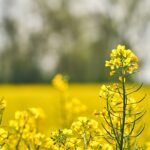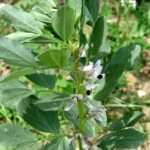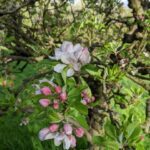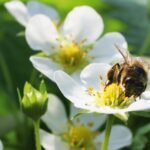Looking for pollination services in South Yorkshire?
With members throughout South and West Yorkshire it's just a case of putting a local beekeeper in touch with someone requiring pollination. We have beekeepers that have 2 or 3 hives but we have beekeepers who have over 100 hives. If you require pollination or just bees on the farm let us know: Email us here.

Oilseed Rape (OSR)
Due to consistent pollination by honey bees across all fields, the pollination experiment showed that it increased seed weight per plant by 18% and market value by 20%. Seed quality was enhanced by insect pollination, rendering heavier seeds as well as higher oil and lower chlorophyll contents, clearly showing that insect pollination is required to reach high seed yield and quality in oilseed rape. Our study demonstrates considerable and previously underestimated contributions from pollinating insects to both the yield and the market value of oilseed rape. (Department of Ecology, Swedish University of Agricultural Sciences, 75007 Uppsala, Sweden).

Field Beans
More pods set on the lower trusses of field beans and yield can be increased by 11 cwt per acre (1380 kg / ha) with the introduction of managed honey bee colonies. Borage A high level of pollination is essential for borage to produce maximum yields. The flower heads of borage plants open for one day only. Therefore, it is crucial to get honey bee colonies to the crop just before flowering begins. Trials in New Zealand showed 20 per cent increase in yield when bees were introduced to the crop.

Top Fruits
The research team also concluded that insect pollinators added £37m a year to the value of just two varieties of British apples, Gala and Cox, by increasing fruit yield and quality. (Farmers weekly) Thursday 9 January 2014 9:53

Soft Fruits eg Strawberries
Strawberries pollinated by bees were redder and brighter than the other berries, they also had fewer deformities & because they were firmer, their shelf life is likely about 12 hours longer than those that were wind-pollinated. This may not sound like much, but after just 4 days of storage, more than 90% of strawberries can't be sold. If pollinators weren’t involved, growers would lose 11% of the fruits’ value. Because the researchers graded the fruits according to a commercial scale, they could calculate the market value of the various strawberries. Pollination by bees led to 39% higher sales value than wind pollination and 54% higher than selfing. These values imply that just by improving fruit quality, bees are responsible for half of the value of the strawberry crop. Pollination likely improves fruit because it stimulates two major plant hormones, Tscharntke says. Auxin promotes cell division and growth, increasing weight and firmness of the fruit. Gibberellic acid delays softening, helping the fruit resist bruises and mould. It’s not known how pollination affects fruit colour, but the change makes sense for the plant’s goal of attracting animals to disperse the seeds.
Previous studies have shown that pollination by bees yields firmer melons and cucumbers and higher sugar content in a few fruits. But this analysis is more comprehensive and the first to assess the broad economic impact.
“It’s a nicely demonstrated case,” says ecologist Nico Blüthgen of the Technische Universität Darmstadt in Germany

 Swarm Season is here!
Swarm Season is here!